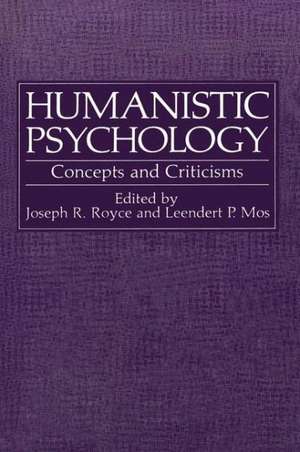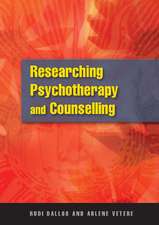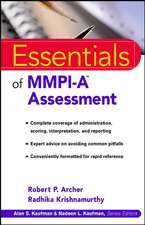Humanistic Psychology: Concepts and Criticisms: Path in Psychology
Editat de Joseph Royceen Limba Engleză Paperback – 27 dec 2012
Din seria Path in Psychology
- 5%
 Preț: 717.00 lei
Preț: 717.00 lei - 15%
 Preț: 644.95 lei
Preț: 644.95 lei - 15%
 Preț: 645.79 lei
Preț: 645.79 lei - 18%
 Preț: 1000.24 lei
Preț: 1000.24 lei - 15%
 Preț: 651.02 lei
Preț: 651.02 lei - 15%
 Preț: 641.85 lei
Preț: 641.85 lei - 18%
 Preț: 778.76 lei
Preț: 778.76 lei - 15%
 Preț: 661.48 lei
Preț: 661.48 lei - 5%
 Preț: 1416.66 lei
Preț: 1416.66 lei - 15%
 Preț: 643.48 lei
Preț: 643.48 lei - 15%
 Preț: 648.20 lei
Preț: 648.20 lei - 18%
 Preț: 1225.16 lei
Preț: 1225.16 lei - 5%
 Preț: 1095.90 lei
Preț: 1095.90 lei -
 Preț: 385.25 lei
Preț: 385.25 lei -
 Preț: 387.75 lei
Preț: 387.75 lei - 15%
 Preț: 634.32 lei
Preț: 634.32 lei - 15%
 Preț: 644.63 lei
Preț: 644.63 lei - 15%
 Preț: 641.38 lei
Preț: 641.38 lei -
 Preț: 385.84 lei
Preț: 385.84 lei -
 Preț: 383.93 lei
Preț: 383.93 lei - 15%
 Preț: 635.96 lei
Preț: 635.96 lei -
 Preț: 393.74 lei
Preț: 393.74 lei - 15%
 Preț: 473.81 lei
Preț: 473.81 lei -
 Preț: 383.71 lei
Preț: 383.71 lei
Preț: 389.49 lei
Nou
Puncte Express: 584
Preț estimativ în valută:
74.53€ • 78.02$ • 61.67£
74.53€ • 78.02$ • 61.67£
Carte tipărită la comandă
Livrare economică 07-21 aprilie
Preluare comenzi: 021 569.72.76
Specificații
ISBN-13: 9781468410730
ISBN-10: 1468410733
Pagini: 336
Ilustrații: XX, 311 p. 1 illus.
Greutate: 0.45 kg
Ediția:Softcover reprint of the original 1st ed. 1981
Editura: Springer Us
Colecția Springer
Seria Path in Psychology
Locul publicării:New York, NY, United States
ISBN-10: 1468410733
Pagini: 336
Ilustrații: XX, 311 p. 1 illus.
Greutate: 0.45 kg
Ediția:Softcover reprint of the original 1st ed. 1981
Editura: Springer Us
Colecția Springer
Seria Path in Psychology
Locul publicării:New York, NY, United States
Public țintă
ResearchCuprins
I — The Historical Context.- 1 Psychology: Humanistic or Human?.- 2 Humanistic Psychology and Metapsychology.- 3 The Impact of Phenomenological and Existential Philosophies on Psychiatry and Psychotherapy.- II — Experiencing and Epistemology.- 4 Discontinuities: Or Theory as Prayer.- 5 Why Man is Prior to Science in any Science of Man: The Epistemological Order of Value and Fact.- 6 Toward an Epistemological Basis for Humanistic Psychology.- III — Paradigm and Method.- 7 The Duality of Experience and the Perplexities of Method.- 8 Descriptive Methods for Inquiry in Human Psychology.- IV — Interdisciplinary Perspectives.- 9 The Anthropological Foundations of a Humane Psychology.- 10 Naturalism, Humanism, and the Theory of Action.- V — Critical Analysis.- 11 The very Idea of a “Humanistic Psychology”.- 12 Humanistic Psychology as a Protest Movement.- 13 Epilogue.- Author Index.














